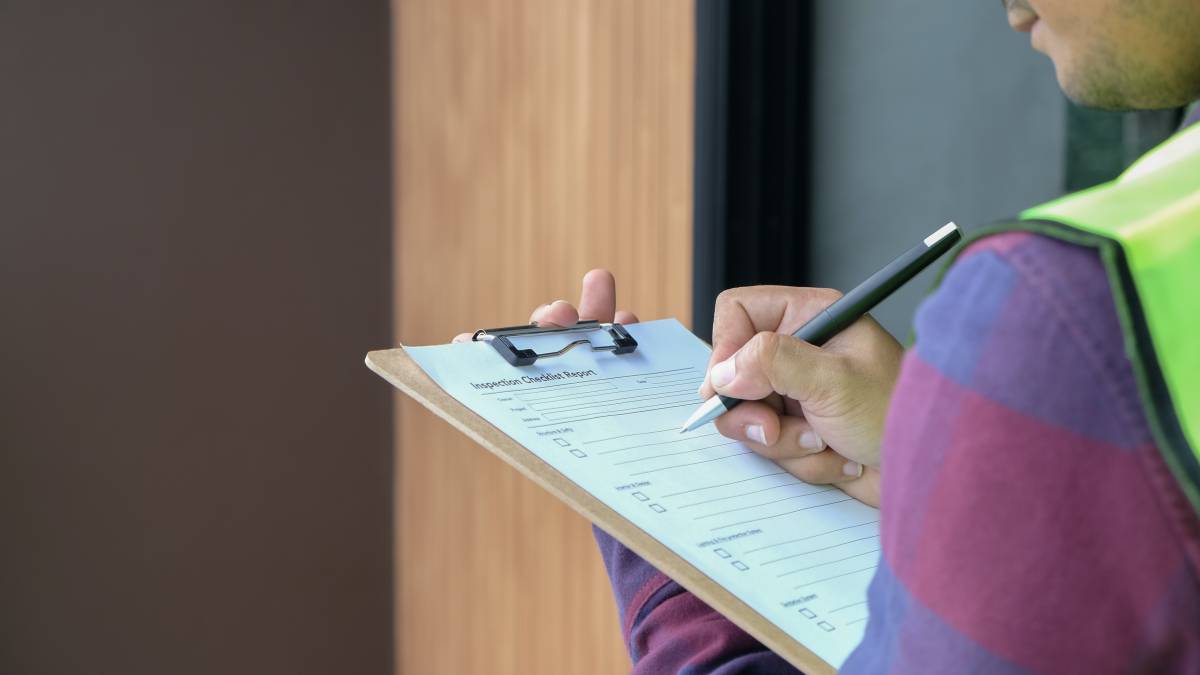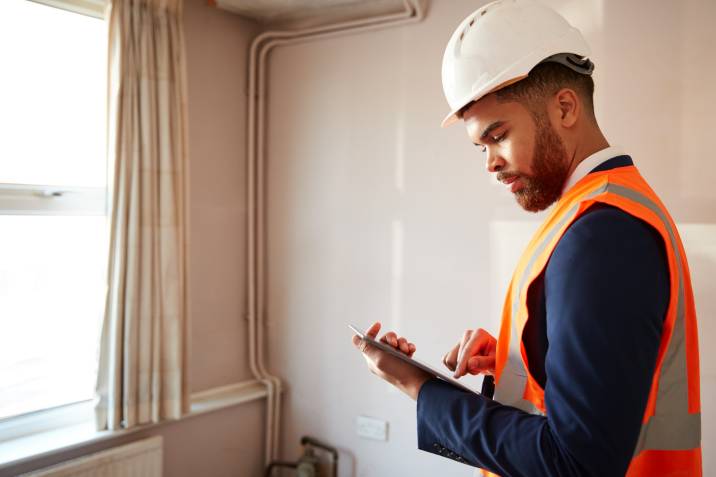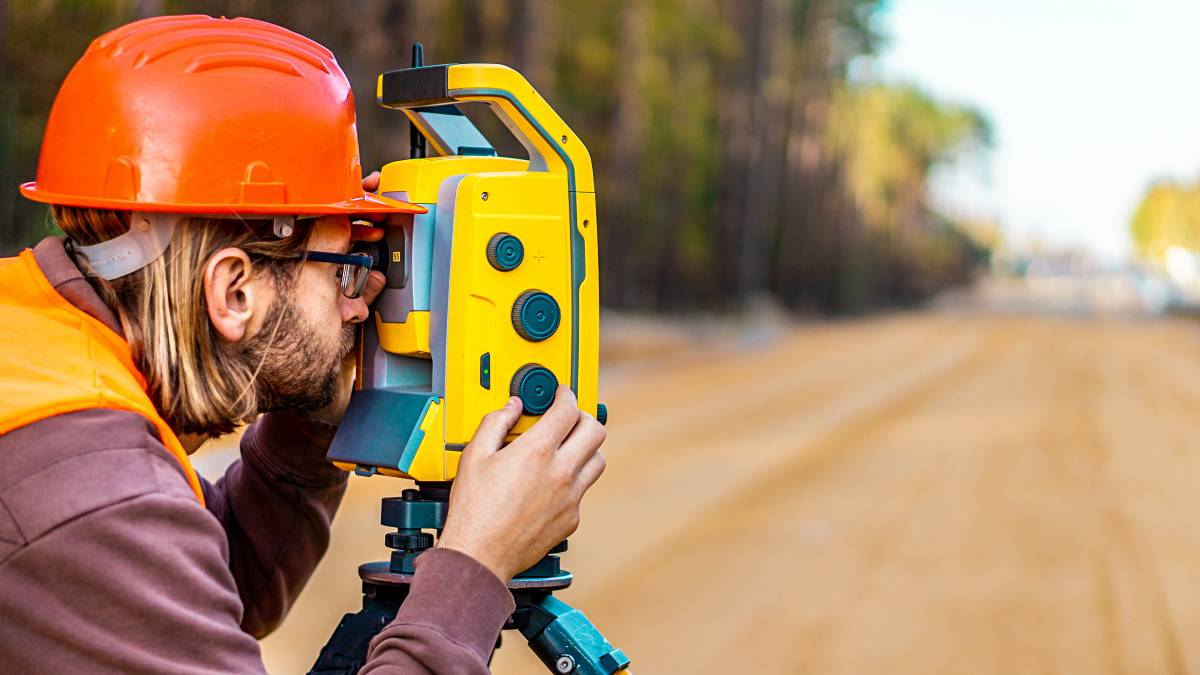- Home/
- Costs/
- House Surveyor/
- House Survey Cost Guide

How much does a house survey cost?
Get a free quote nowPost to find a price. It's free and only takes a minute.
Price guide
£400 - £1,500
low
£400
median
£500
high
£1,500
Last Updated on
Before you buy your dream house, it is best to have it checked through a house survey. After all, you will be spending a lot of your hard-earned money on this property and would want to make sure you will move in its best condition.
House survey costs range from £400 to £1,500 in the UK, depending on the size of the property and the type of survey. If you want to know more about how much a house survey costs in the UK, we have made a comprehensive price guide to help you make an informed decision and get ready for your new home.
What factors affect house survey costs?
The top factors that affect house survey prices are survey type, level of detail, property value and property size. We will discuss each of these factors below.
Survey type
There are four types of house survey: condition survey (level one), homebuyer or home condition survey (level two), building survey (level three) and snagging survey. Each survey has its own level of detail and factors to consider in inspecting a home. A more detailed inspection would mean higher costs; however, this would ensure that everything is in good condition before you seal the deal.
To make everything standardised, three accrediting bodies facilitate the four surveys above. The Royal Institution of Chartered Surveyors (RICS) offers the condition survey, homebuyer survey, and building survey. At the same time, the Sava and Residential Property Surveyors Association (RPSA) offer the home condition survey.
Property size
As mentioned, the property size will affect the average costs of a house survey. Bigger houses mean more rooms that need to be visited and more factors that need to be checked. This will take longer to finish and will have higher costs compared to reviewing a flat.
Property value
Aside from the survey type and property size, house survey costs in the UK can go higher or lower depending on the property’s value. The more expensive the property, the higher the house survey costs.
Why so? If you plan to invest a considerable amount of your savings in a house, it is best to have a detailed survey of each corner and space to ensure you get the most out of your money. Whilst a more detailed survey means higher costs, nothing can compare to the peace of mind brought by knowing you are getting a good value investment from your property purchase.

Types of house surveys and their costs
The four types of house survey and their average costs are:
House survey type |
Property price (Up to £99,000) |
Property price (£100k – £249k) |
Property price (£250k – £349k) |
Property price (£350k – £499k) |
Property price (£500k+) |
|
Condition report (Level 1 survey) |
£400 |
£500 |
£600 |
£700 |
£800 |
|
Home buyer report (Level 2 survey) |
£450 |
£600 |
£700 |
£800 |
£1,000 |
|
Building survey (Level 3 survey) |
£600 |
£750 |
£900 |
£1,000 |
£1,500 |
Snagging survey |
£300 to £600 |
£300 to £600 |
£300 to £600 |
£300 to £600 |
£300 to £600 |
Condition report (Level one survey)
A condition report or a level one report is the most basic type of house survey. It provides an overview of the condition of the property, including urgent issues, risks, and defects. It is best conducted in modern homes or standard properties in good shape. A condition report starts at £400 and can go as high as £800 for more expensive properties.
Homebuyer or home condition survey (Level two survey)
Whilst the condition report is the most basic, the most popular type of house survey is the home condition or homebuyers survey. This type of survey covers level one assessment plus a closer look at other aspects of the house. It highlights defects and problems affecting the value of the property while also advising on repairs and maintenance. This survey also provides information on market valuation and property rebuilding costs.
Although the homebuyer report can already point out issues that do not meet building regulations, it is less in-depth than the level three survey and is more surface-level. This is best conducted on properties that are in reasonable condition. Buying house survey costs start at £450 but could go as high as £1,000 depending on the property value.
Building survey (Level three survey)
A building survey (or a full house structural survey) is the most in-depth type of house survey. It looks at the overall property condition and breaks down defects and repairs needed, even under floorboards or behind furniture.
It also advises on property maintenance, making it the best type of house survey on more complicated homes. These are your larger and older properties that are in poor condition or have an unusual design. Due to its level of detail, this is also recommended on more expensive house types and big renovation projects. Of course, house structural survey costs are expensive, ranging from £600 to £2,500 and is done by a building surveyor or a structural engineer. Hiring a structural engineer for house surveys costs more but gives you peace of mind knowing it’s done by a professional.
Snagging report
A snagging report is a type of house survey that is usually done to inspect newly built homes. It identifies a range of problems, from cosmetic defects to structural issues within the house. A snagging report costs around £300 to £600.
What are the benefits of getting a full house survey?
Full house survey costs may be expensive, but a detailed report will help you get early visibility of any potential damage and repair work needed within all areas of the house. You can use this as leverage in negotiating the final price of the house in case there are significant repairs that need to be done. A full structural survey also ensures that the house is in its best shape.
Additional costs to consider when getting a house survey
Now that you know the cost of a full house survey in the UK, it’s best to consider other potential factors that may come up in different stages of the land or house buying process.
Before buying land, you may consult with a land surveyor to help you understand the area and surrounding landscape and make the best use out of it. If you already have land and plan to undergo construction, consider hiring a quantity surveyor to help ensure the construction project will run smoothly and would not go over budget. If you share a boundary or a wall with a neighbour and need help resolving disputes, a party wall surveyor can help sort things out.
Suppose everything has been straightened out, but you want to organise a more detailed survey to further investigate the defects and repairs needed in the house. In that case, you may also hire specialist surveyors to do the checking for you. For example, if a dampness problem was listed in the house survey report, a damp survey done by a damp surveyor helps break down the causes of damage and formulate solutions.
Besides these, you may also hire a qualified surveyor to check other aspects of the house, such as:
- Structure – Surveyor checks potential damage in support beams and any imbalance in the foundation that causes an unstable structure
- Heating system – Surveyor checks if heating is working properly and if there is any sign of leakage
- Timber – Surveyor checks potential pest and insect infestation
- Roof – Surveyor checks any rot, leakage or unstable structure
Electrical wiring – Surveyor checks if the electrical system is updated and working well
If you are ready to take the next step and want to organise a house survey in your dream property, let Airtasker help you! Just put up a task, then prepare to receive offers from local surveyors in minutes.
FAQs
Find house surveyors, fast
Post a task
Related price guides
